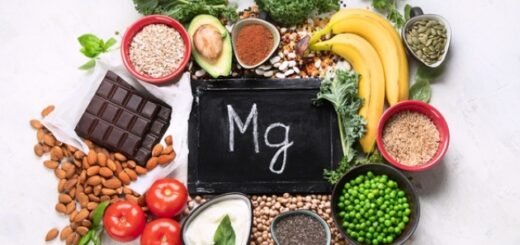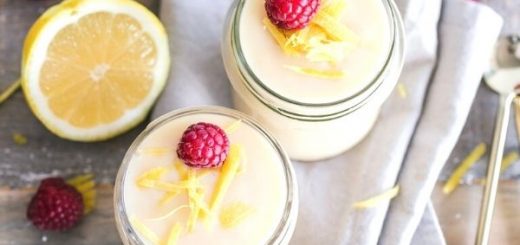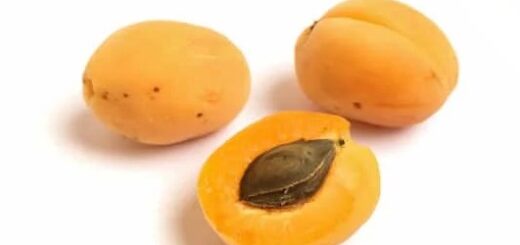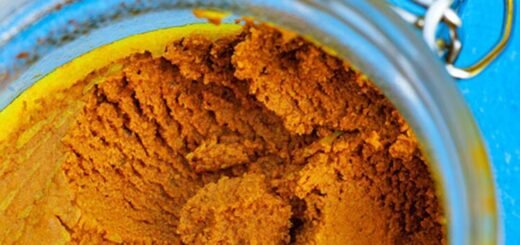Is Psyllium Healthy? Amazing Health Benefits of Psyllium Husk

Psyllium, you may have heard of it. It is a dietary supplement that is becoming increasingly popular. Many people see it as a means to improve digestion and promote overall health. But is psyllium healthy? And what should you pay attention to when taking psyllium?
What exactly is psyllium?
Psyllium – also sometimes called ispaghula – is a form of vegetable fiber. It comes from the outer shells of the seeds of the plantago ovata plant. This is a plant in the plantain family, which mainly grows in India and Pakistan.
Because psyllium fiber is made from the husk of these seeds, the fibers are also sometimes called psyllium husk fibers or psyllium husk (husk is English for husk).
The seeds contain enormous amounts of fiber that dissolve in water. This gives psyllium a recognizable gel-like texture. A bit similar to chia seeds . We will tell you later what this means for your health.
RESUME
Psyllium is a fiber made from the shell of the seed of the plantago ovata plant. The seeds are extremely rich in fiber.
What are the nutritional values of psyllium husks?
The nutritional values of psyllium husks may seem strange at first. Watch:
| 100 grams of psyllium | Recommended daily amount | |
| Energy | 0 kilocalories | Woman: 2000 calories Man: 2500 calories |
| Fat | 0 grams | Female: 44 to 89 grams Male: 56 to 111 grams |
| Of which saturated | 0 grams | Woman: maximum 20 grams. Man: maximum 25 grams |
| Carbohydrates | 88 grams | Woman: 260 grams Man: 325 grams |
| Of which sugars | 0 grams | Woman: 90 grams Man: 112 grams |
| Fibers | 71 grams | Woman: 25 grams Man: 30 grams |
| Protein | 0 grams | Woman: 50 grams Man: 62.5 grams |
| Salty | 0 grams | Woman: 6 grams Man: 7.5 grams |
If you look at the nutritional values of psyllium husk on the packaging, you may see that it contains approximately 220 calories, 4 grams of fat and 15 grams of protein (depending on the brand) per 100 grams [1]. How is that possible?
Psyllium is hardly absorbed by the body. Therefore, you can say that it does not contain calories, fat and proteins. Why does it have carbohydrates, we hear you ask?
This has to do with the way nutrients are indicated. It’s a bit of a technical story, but what you have to remember is: the carbohydrates from psyllium are also not absorbed by the body.
If you follow a low-carbohydrate diet – such as the diet that EenMaatjeMinder has developed based on the latest scientific insights – then you do not have to be alarmed by the high carbohydrate content in psyllium.
Moreover, you eat psyllium in very small amounts.
RESUME
Although 100 grams of psyllium contains 220 calories, 4 grams of fat and 15 grams of protein, these are not absorbed by the body. So you can say that it contains no calories, fat or proteins. There are 71 grams of fiber in 100 grams of psyllium.
What are the health benefits of psyllium husk?
Psyllium consists almost entirely of water-soluble fiber. They have a positive effect on health.
Good for digestion and bowel movements
Because psyllium fibers absorb water, they relax bowel movements: they make your stool softer. For example, they help prevent or remove blockages.
This may be soothing for some people with irritable bowel syndrome (intestinal complaints) and Crohn’s disease. More research needs to be done to prove this.
Psyllium is also a probiotic. This means that psyllium stimulates healthy bacteria in the intestines.
May promote heart health
Soluble fiber helps control cholesterol. One study showed that daily intake of psyllium husk reduced bad cholesterol in obese people.
Psyllium also lowers blood pressure and can make the heart healthier.
Has a low glycemic index
The glycemic index is a measure that indicates how quickly carbohydrates from food increase blood sugar levels. In general, you can assume: the lower the glycemic index, the healthier.
Research suggests that fiber – such as that found in psyllium – helps maintain a healthy glycemic balance (aka healthy blood sugar levels).
Helps maintain a healthy weight
Maintaining a healthy weight is challenging for many people. Eating enough fiber helps with this. And therefore eating psyllium most likely also.
Because psyllium absorbs moisture, it makes you feel full faster after eating it. As a result, you probably eat less.
RESUME
Psyllium keeps the digestive system healthy and can prevent stools that are too hard. It may also be good for heart health and blood sugar levels. Psyllium can also help maintain a healthy weight.
How do you use psyllium husks?
You can buy psyllium in powder form or in the form of fiber capsules. Many people mix it with water or another liquid. If you take it immediately before or during a meal, you will feel full faster and, as a result, probably eat less.
You can also use psyllium husks as an ingredient for various dishes. For example, you can mix them into your bread or pancake batter. Or use them like chia seeds to make a delicious pudding.
RESUME
Mix psyllium husks with water or use them as an ingredient in homemade bread or pancakes. You can also use psyllium husks to make a pudding. Drink enough water.
What are the health disadvantages of psyllium husks?
Although psyllium is generally considered safe, there are some possible side effects.
Can lead to abdominal complaints
Some people may experience bloating, flatulence or abdominal cramps when taking psyllium.
This can usually be reduced by starting slowly with a low dose and gradually increasing it. Your body has to get used to ingesting fiber.
Drink enough water
Make sure you drink enough water when taking psyllium. Psyllium absorbs moisture. This way you prevent constipation and experience the most health benefits.
RESUME
If you experience bloating, flatulence or abdominal cramps after using psyllium fibers, increase your intake more slowly.
Conclusion
Psyllium is a fiber made from the shell of the seed of the plantago ovata plant. The seeds are extremely rich in fiber. 100 grams of psyllium contains 71 grams of fiber. The calories, fats and proteins in the fibers are not absorbed by your body.
Psyllium fibers are good for digestion and can help keep stools soft. They may also be good for your heart and your blood sugar levels. There is evidence that psyllium husks help people maintain a healthy weight.
Add psyllium husks as an ingredient in homemade bread or pancakes. Or make it into a pudding.
Psyllium husks are safe to use. If your stomach starts to bother you, increase your fiber consumption slowly.








